By Jon Diamond
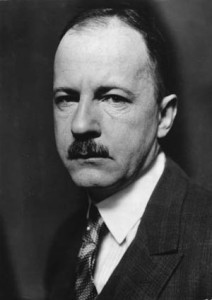
Many accounts have been written about the peace mission flight of Deputy Führer Rudolf Hess and his parachute landing in a farm field in Scotland in May 1941 to discuss with the Duke of Hamilton a proposal to end hostilities. Hess was also Reich minister without portfolio and leader of the Nazi Party, among other titles. He piloted his own plane from Augsburg and bailed out over the duke’s estate.
In sharp contrast, very little is known about the secret mission to England by Baron Ewald von Kleist-Schmenzin that preceded the one by Hitler’s henchman. At the behest of the head of the Abwehr (German intelligence), Admiral Wilhelm Canaris, this Prussian nobleman met in mid-August 1938 with Lord Lloyd, chairman of the British Council; future prime minister Winston Churchill, a vocal critic of the current British government; and Sir Robert Vansittart, an ardent antiappeaser in the Foreign Office. This clandestine operation was orchestrated by the Abwehr as the German military’s anti-Hitler resistance movement sought British support of the German General Staff’s plan to mount a coup d’état against the Nazi regime as the Czechoslovakian crisis was escalating.
Kleist-Schmenzin and Canaris
Ewald von Kleist-Schmenzin was born on March 22, 1890, in Pomerania and had all the trappings of a typical Junker, which included owning a vast tract of land beyond the Elbe River. He was a political conservative who was an active participant in the German National People’s Party. He also supported the concept of a return to a monarchy and harbored devout Christian ideals. In the decade of 1923-1933, he was a staunch opponent of Nazism before Hitler assumed dictatorial power. In 1929, he published a manuscript on the dangers of National Socialism, thereby allowing him to take a prominent place in the ranks of the opposition to Hitler. In 1934, his political party was disbanded by Hitler; however, he still had a prominent place among Germany’s industrialists and entrepreneurs. After 1934, all opposition political parties, the Catholic Church, the Wehrmacht, the financial and industrial sector, and the entire apparatus of the government became dominated by Hitler.
Although seeming very odd at first glance, Admiral Wilhelm Canaris greatly admired Kleist-Schmenzin’s courage and political convictions. Secretly, Canaris was dubious about the future of the Third Reich, and he recruited the baron into his unofficial intelligence network. The Abwehr director believed that war should be avoided at all costs, and Kleist-Schmenzin had strong connections with England, especially, among some journalists. One such journalist was Ian Colvin, a biographer of Vansittart who worked for the London News Chronicle. Kleist-Schmenzin met Colvin in July 1938 to ask him if he thought Britain would fight in defense of Czechoslovakia.
The German resistance movement began to plan for an envoy to Britain in April 1938. In May, Canaris knew of Hitler’s plan for an invasion of Czechoslovakia, and the opposition needed to know if the British would come to the defense of the Czechs. A member of the German General Staff said, “If the Allies energetically alert Hitler to the fact that they will oppose any aggression against Czechoslovakia, or any intervention whatsoever, then Hitler is certain to pull in his claws.”
“Our Visitor from Germany has just Arrived”
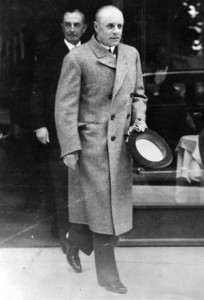
At this juncture, Canaris introduced Kleist-Schmenzin to General Ludwig Beck, head of the German General Staff, who was an active conspirator and in need of aligning the Western Allies against the Nazi regime and its intentions to seize Czechoslovakia by force. Beck was soon to resign—in early August 1938—as a protest against Hitler’s plans.
In the meeting among Canaris, Kleist-Schmenzin, and Beck, the general said, “If the British allow Hitler freedom of action, they will be losing their two principal allies in Germany: the General Staff and the German people. If you can bring back some concrete proof that Great Britain will go to war in the event of aggression against Czechoslovakia, then I will put an end to this regime.”
All that remained now was for Canaris to get the baron to England without the knowledge of either the Gestapo or Britain’s Secret Intelligence Service (SIS). On August 13, 1938, Canaris informed Kleist-Schmenzin of his plans for the clandestine trip to London. Canaris had provided Kleist-Schmenzin with a false passport.
On August 18, the baron boarded a Lufthansa Junkers-52 that would carry him to the British capital. Accompanying the baron was an Englishman, H.D. Hanson, who solicited the customs officers at Croydon airfield to let the “civilian in the gray suit” pass without interference. Hanson then notified the SIS, “Our visitor from Germany has just arrived.”
Kleist-Schmenzin first met with Sir Robert Vansittart at the Foreign Office. On January 1, 1938, Vansittart was “kicked upstairs” and given the empty or honorary title of chief diplomatic adviser to the government of Prime Minister Neville Chamberlain. Prior to that Vansittart was the permanent undersecretary for foreign affairs at the Foreign Office. Vansittart, though, was still an avowed enemy of the Nazi regime.
Kleist-Schmenzin’s message to Vansittart was simple. Hitler was planning to invade Czechoslovakia in mid- or late September. If Britain made it public that it was prepared to go to war with the Nazi dictator, even at the risk of starting another world conflagration, Hitler would have to shelve his plan or, perhaps, even be overthrown by anti-Nazi German officers, who would then form a new government.
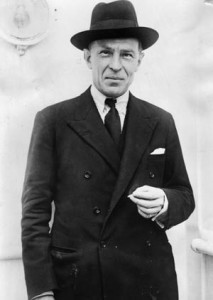
Kleist-Schmenzin assured Vansittart that he spoke for “all the generals in the German Army who are friends of mine. They are all dead against war, but they will not have the power to stop it unless they get encouragement and help from outside. As I have already told you, they know the date and will be obliged to march at that date.”
Vansittart asked which date it was, and in a rare moment of laughter between the two men, Kleist-Schmenzin responded, “Why of course you know it. Well anyhow, your prime minister knows it. After the 27th September.”
As the ill-defined chief diplomatic adviser, Vansittart maintained contact both with British opponents of Chamberlain’s appeasement policy and with anti-Nazi opponents in Germany. Out of protocol and loyalty, Vansittart briefed both Lord Halifax, the foreign secretary, and Chamberlain about Kleist-Schmenzin’s mission. In his letter to Halifax, Vansittart noted Kleist-Schmenzin’s observations concerning Nazi Foreign Minister Joachim von Ribbentrop.
“Herr von Ribbentrop keeps telling him [Hitler] that when it comes to the showdown neither France nor England will do anything,” he said.
He also informed Halifax that Kleist-Schmenzin’s recommendations for stopping the invasion of Czechoslovakia were twofold. “Firstly, since Hitler now believes that the attitude of France and England in May was entirely bluff, you must make him understand that this is not the case,” he said.
Kleist-Schmenzin’s second recommendation was, “A great part of the country [Germany] is sick of the present regime and even a part that is not sick of it is terribly alarmed at the prospect of war, and the conditions to which war will lead them. I have already told you that the army, including [Field Marshal Walther] Reichenau, is unanimous against it if they can get any support. I wish that one of your leading statesmen would make a speech which would appeal to this element in Germany, emphasizing the horrors of war and the inevitable general catastrophe to which it would lead.”
At the conclusion of his meeting with Vansittart, Kleist-Schmenzin added, “There was no prospect whatever of any reasonable policy being followed by Germany as long as Hitler was the head of affairs but … if war was avoided on this occasion, it would be a prelude to the end of the regime and a renascence of a Germany with whom the world could deal.” Lord Halifax sent the Vansittart memorandum over to the prime minister.
Churchill Heeds the Warning
After the meeting with Vansittart, Kleist-Schmenzin arrived at the Park Lane Hotel on the evening of August 18. Kleist-Schmenzin met with Lord Lloyd, chairman of the British Council and former high commissioner in Cairo, and they dined at Claridge’s that night. Lord Lloyd was receiving information from his contacts that elements within the German General Staff were becoming more threatened about Hitler’s bellicose ambitions. Lord Lloyd spoke no German, Kleist-Schmenzin no English, so they conversed in French. Kleist-Schmenzin made it clear to Lloyd that the mobilization plans for the Czechoslovakian invasion were all in place. Lord Lloyd, too, wrote a memorandum of his meeting with the baron to Halifax.
The next day Kleist-Schmenzin arrived at Chartwell to meet with Winston Churchill. Randolph Churchill, Winston’s son, took notes as the baron and the backbencher conferred. On the previous day, Churchill had warned in the London Daily Telegraph that any German attempt to crush Czechoslovakia would ultimately involve “all the greatest nations of the earth.” Churchill repeated this warning to Kleist-Schmenzin, who asked for a letter from Churchill to be given to the German General Staff.
After meeting with Kleist-Schmenzin at Chartwell, Churchill sent a memorandum to the Foreign Office, apprising them of the baron’s case for standing up to Hitler. Receiving official endorsement to do so from Halifax, he also wrote von Kleist-Schmenzin a letter of encouragement to show to his German generals and monarchist allies. Churchill also sent copies of his discussion with Kleist-Schmenzin to Chamberlain and to the French prime minister, Edouard Daladier.
Churchill strongly urged both the British and French leaders to admonish Hitler to leave Czechoslovakia unmolested. Churchill also wanted the Soviet Union to endorse such a letter. This was all part of a scheme to encourage U.S. President Franklin D. Roosevelt to ultimately intervene in the European crisis and pressure Hitler to cease his warlike posture. However, Halifax and Chamberlain were not keen to participate in Churchill’s multilateral plan, especially since they did not believe the Russians would participate in such a joint declaration to Hitler. Chamberlain was not going to risk war with Germany based solely on Kleist-Schmenzin’s visit at the behest of anti-Hitler German generals.
In addition to alerting his London hosts about the mobilization plans, Kleist-Schmenzin further elaborated, “If Great Britain, in concert with France and Russia, adopts an energetic attitude toward Hitler, if she issues a warning that he will be held solely responsible, we can expect that the generals will put Hitler under arrest if they see him persist in his policy of aggression. In addition, a British statesman should make an open declaration, aimed especially at German public opinion, which would make it clear that an attack on Czechoslovakia will bring down all the calamities of a second world war on Europe.”
He firmly stated that without such a strong statement by the British policymakers the General Staff “would be incapable of carrying out any action designed to put an end to this reign of terror, and it will be impossible to establish any kind of rational world order with this regime in place.”
In his subsequent meeting with Churchill, Kleist-Schmenzin offered his opinion that, if Hitler were overthrown, then the monarchy would be restored; however, he repeated his request that he receive a letter addressed to General Beck to take back to Germany. Kleist-Schmenzin told Churchill that his generals were “all for peace and if only they could receive a little encouragement they might refuse to march. Some gesture was needed to crystallize the widespread and indeed, universal anti-war sentiment in Germany.”
Kleist-Schmenzin posited that with senior British political support the German General Staff would “insist on peace and there would be a new system of government within 48 hours.” Churchill, although out of the cabinet for years, did everything in his power to assist the baron in his mission and to stiffen the resolve of the German opposition group. Later that month, Churchill publicly railed in his constituency against the proposed invasion of Czechoslovakia as “a crime against civilization and against the liberty of mankind.”
Chamberlain Unswayed
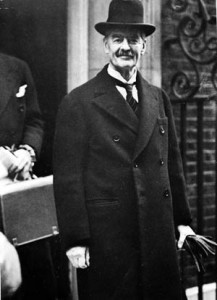
But Churchill’s statements to Kleist-Schmenzin and to his constituents were from a man still in the “political wilderness.” The political leverage to challenge the Nazis was firmly wielded by Prime Minister Chamberlain. In a letter to Halifax, Chamberlain characterized Kleist-Schmenzin as a political enemy of Hitler, who was blinded by personal hatred. He wrote, “There are certainly a great many arguments which might be brought to bear against his allegations. We have recently heard other voices from Germany claiming that Hitler’s warlike intentions are to be taken seriously and, consequently, this suggests that we should respond to them with gestures of conciliation.”
Thus, the prime minister, for fear of offending Hitler, would not take a public stance in regard to Kleist-Schmenzin’s visit and request. Chamberlain dismissed the Kleist-Schmenzin visit after reading Halifax’s and Vansittart’s memoranda.
He commented, “I take it that von Kleist-Schmenzin is violently anti-Hitler and is extremely anxious to stir up his friends in Germany to make an attempt at its overthrow. He reminds me of the Jacobites at the Court of France in King William’s time, and I think we must discount a good deal of what he says.”
Chamberlain did show some capriciousness. After negating Kleist-Schmenzin’s visit, he sent another note to Halifax conveying an “about face.” He said to Halifax that he thought perhaps they ought to do something. As a result, Ambassador Sir Nevile Henderson was summoned from Berlin, informed of the nature of Kleist-Schmenzin’s message, and instructed to warn Hitler that Britain would stand firm. Henderson dissuaded his prime minister from this approach. Instead, the ambassador was to see Hitler to find out whether friendly Anglo-German talks could be started. Clearly, this is not what Kleist-Schmenzin and his cabal wanted from the British government.
Henderson, a known appeaser, also disavowed the opposition stance of the German General Staff and stated, “Their information is one-sided, partisan, and intended solely as propaganda.”
True to form, he was not neutral in regard to Kleist-Schmenzin’s London mission. On August 16, Henderson telegraphed London that, according to information given to the British military attaché in Berlin, a Herr von Kleist would come by air to London on August 18 as an emissary of the moderates in the German General Staff. Henderson also mentioned that von Kleist carried letters to leading politicians and would seek “material with which to convince the Chancellor of the strong possibility of Great Britain intervening should Germany take violent action against Czechoslovakia.” Henderson did not want Kleist-Schmenzin’s visit to offend Hitler, so he advised Halifax, “It would be unwise for him to be received in official quarters.”
Kleist-Schmenzin left London on August 23. He was deeply disappointed. He told Canaris, “I found no one who would be willing to take advantage of this opportunity to risk waging a preventive war. It is my impression that the English want to avoid the outbreak of war this year, and at almost any price.”
Canaris Covers Up
But Kleist-Schmenzin did receive Churchill’s promised letter a few days later by a secret courier, Fabian von Schlabrendorff, an Abwehr attorney. What Churchill wrote was quite prophetic, “I am sure that the crossing of the frontier of Czechoslovakia by German armies or aviation in force will bring about a renewal of the world war. I am as certain as I was at the end of July 1914 that England will march with France and that … the spectacle of an armed attack by Germany upon a small neighbour and the bloody fighting that will follow will rouse the whole British Empire and compel the gravest decisions. Do not, I pray you, be misled upon this point. Such a war, once started, would be fought out like the last to the bitter end, and one must consider not what might happen in the first few months, but where should all be at the end of the third or fourth year.”
Unfortunately for Kleist-Schmenzin, Canaris, and Beck’s General Staff, Churchill was not the prime minister. To Beck, Churchill’s letter was hardly a ringing endorsement of impending hostilities should Czechoslovakian sovereignty be violated. Although Churchill’s letter was sincere in both its prose and vision, it ultimately spelled personal doom for Kleist-Schmenzin. During the purge of 1944, the letter was found in Kleist-Schmenzin’s desk after the attempt on Hitler’s life and used as evidence to condemn him to death.
With his mission concluded, Kleist-Schmenzin was despondent and returned to his Pomeranian estate. In September 1938, the Gestapo informed Canaris that an envoy had recently gone to London and engaged with British politicians in conversations that were no less than treasonable. Canaris was given the charge to find the traitor. He contacted Kleist-Schmenzin, and an alibi was prepared in the event he was questioned.
Also, the Abwehr leader gave a reliable subordinate, Colonel Hans Oster, the task of investigating the Gestapo’s claim. Oster was the same officer who had made the baron’s travel arrangements. In his instructions, Canaris informed his handpicked investigator, “Of course, our man has nothing to do with any of this. You will be searching elsewhere. I don’t want his name brought up in this inquiry.”
Continuing Opposition
Throughout the war, Kleist-Schmenzin was still in favor of Hitler’s overthrow. He conspired to concoct a number of assassination attempts against Hitler. One such plan involved his son, Lieutenant Ewald-Heinrich von Kleist-Schmenzin, who was to blow himself up, along with Hitler, as the Nazi dictator inspected new uniforms. Because the facilities storing these new uniforms were destroyed, Hitler canceled the visit.
The baron also supported Colonel Claus von Stauffenberg’s briefcase bomb attack on Hitler at the Wolf’s Lair in East Prussia on July 20, 1944. The Prussian aristocrat was so deeply involved in the Operation Valkyrie conspiracy that Stauffenberg appointed him political representative in the Stettin military district in preparation for the coup.
After the failure of Stauffenberg’s attempt to assassinate Hitler, Kleist-Schmenzin was arrested the next day. He was tried, convicted, and sentenced to death on February 23, 1945, and ultimately hanged at Plotzensee Prison in Berlin on April 9, weeks before the collapse and surrender of the Third Reich that he had sought to dismantle diplomatically in August 1938.
Canaris, too, was apprehended after the July 20 assassination attempt. When his five volumes of diaries were discovered in a safe in Zossen early in April 1945, the tempo of his demise accelerated. These tomes listed in detail all of Canaris’s contacts with the British and his consistent attempts since 1938 to come to an understanding with London. Days after the discovery, a summary trial occurred, and Canaris was sentenced to death by hanging. His execution occurred the next day, along with his loyal subordinate, Colonel Oster.
Originally Published October 2010
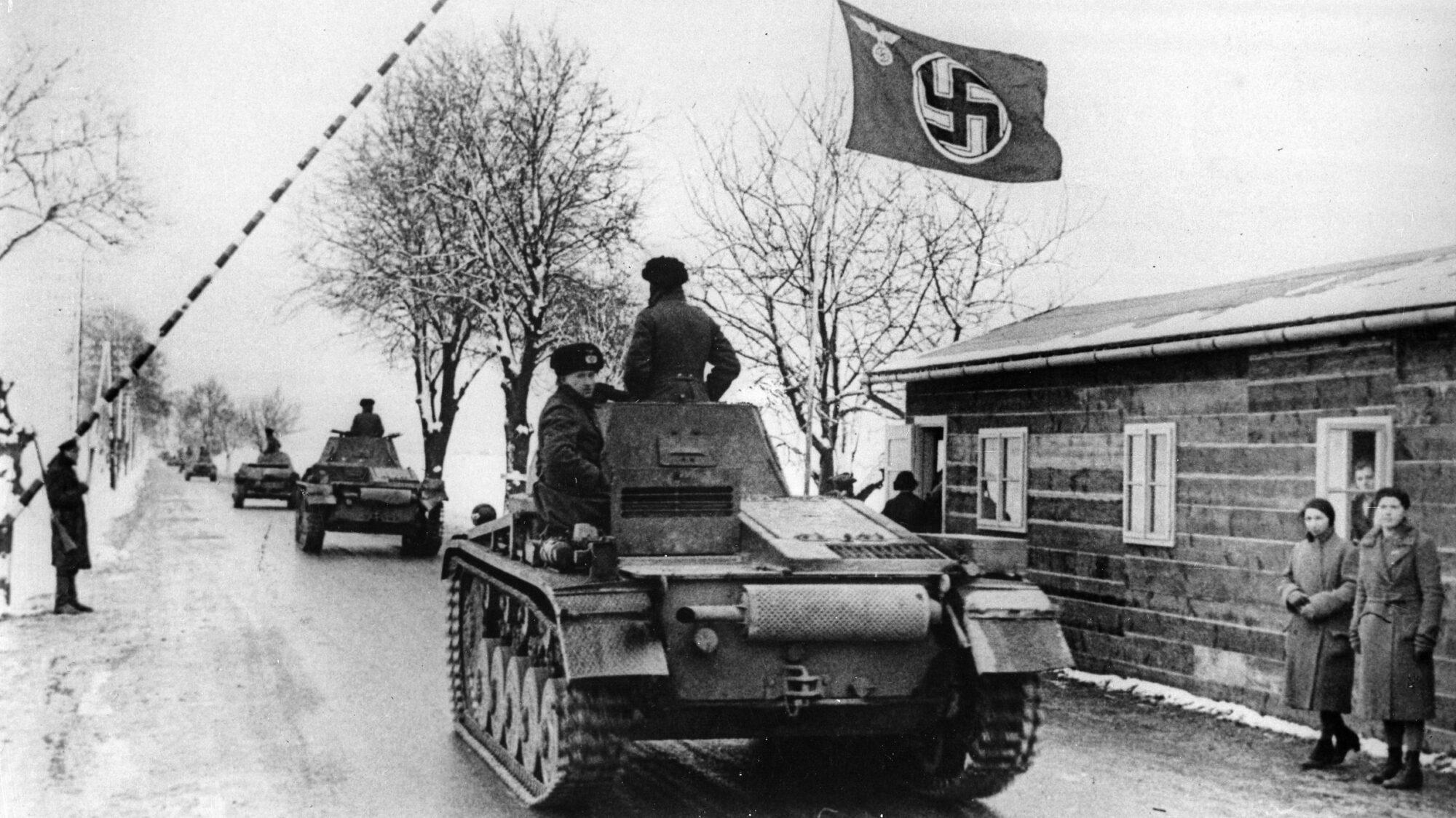


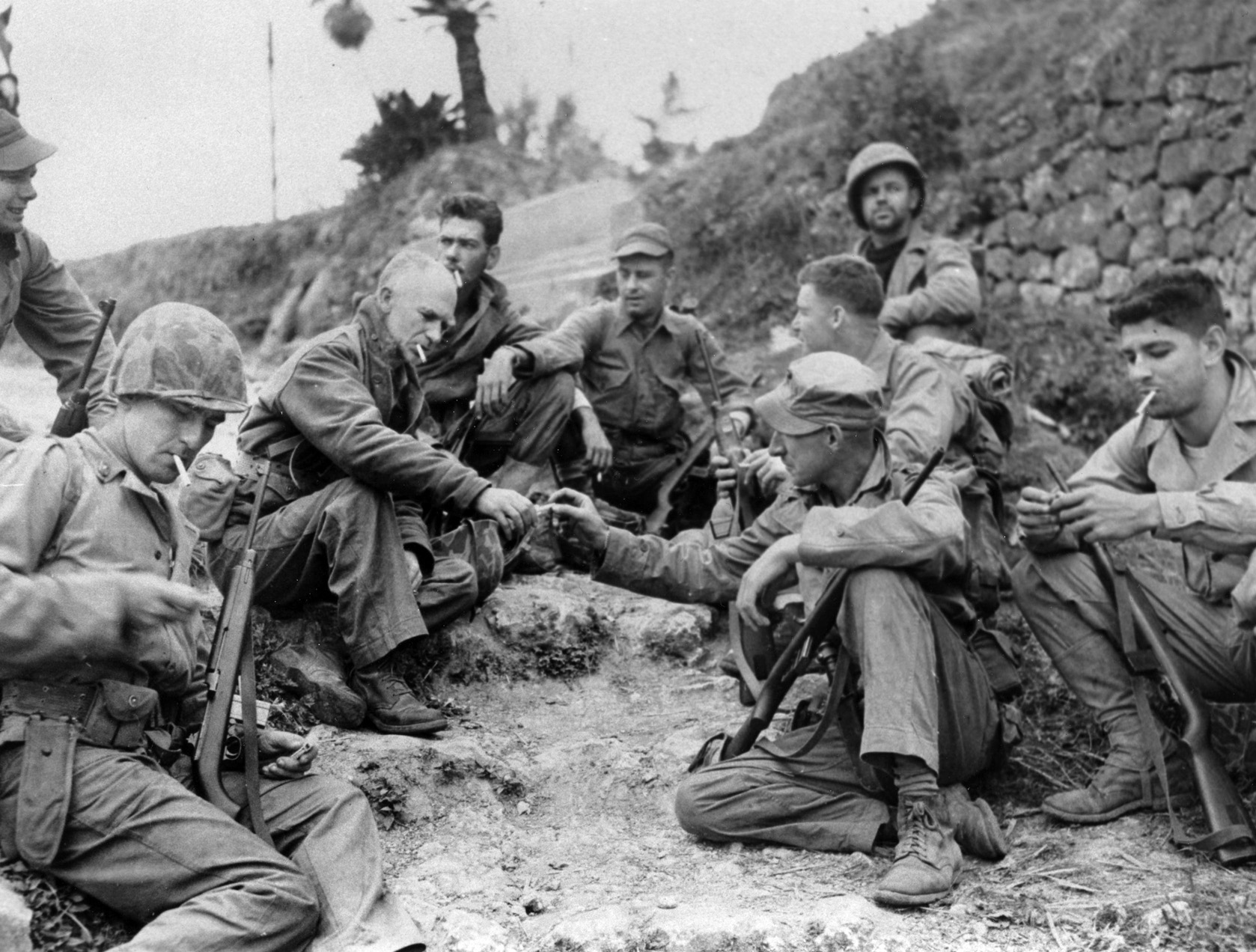
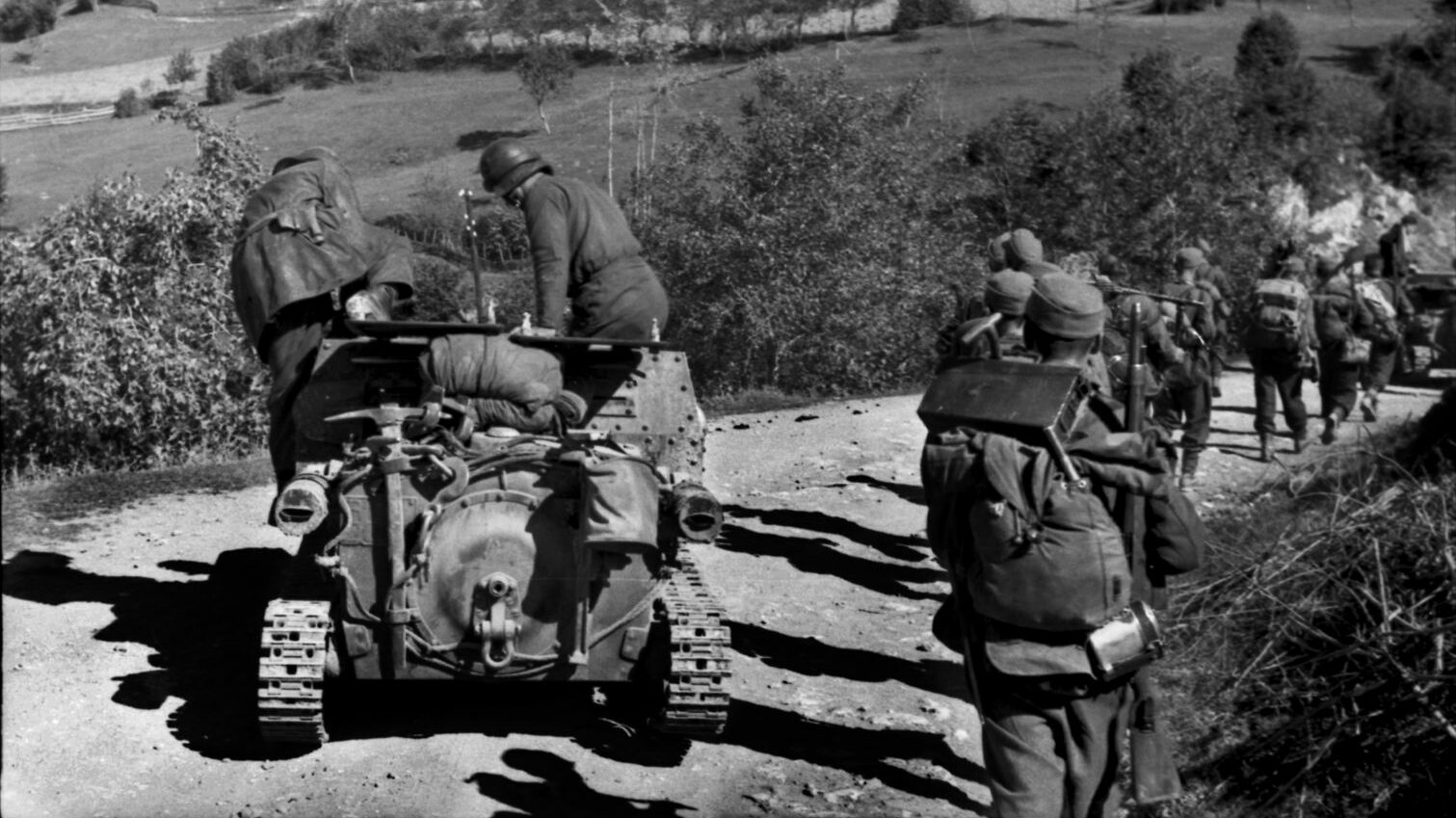


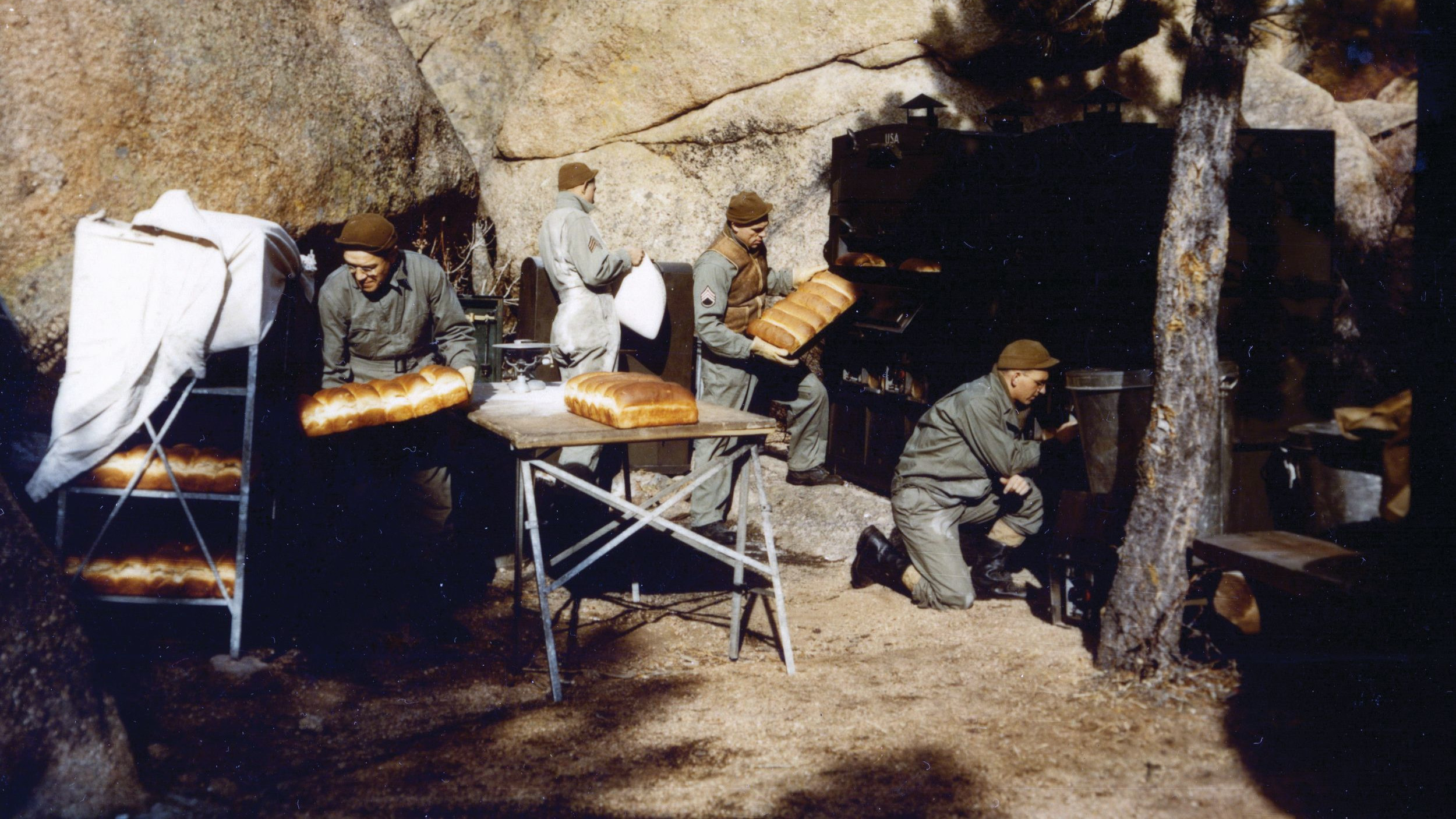
Jon Diamond continues to write articles that keeps me reading. This one was on a subject I knew nothing about and learned so much. A sad ending for Canaris here.
There were several occasions when Hitler could have been stopped and war prevented. Occupation of the Rhineland was the first and best but also Sudetenland and other plots similar to this one. Unfortunately, though statesmen seek peace they often fail to use power to back up the effort.
Some of this reads like what is happening in Russia and Putin’s attempted theft of neighboring territory, and his crackdown on anyone who dares criticize him. He even uses the same excuses Hitler did in 1938, “protecting” ethnic Russians when in reality he’s caused the deaths of hundreds of thousands of Russians and Ukrainians. It appears some have not learned the lessons of the late 1930s and how a fascist dictator could have been stopped before tens of millions lost their lives.